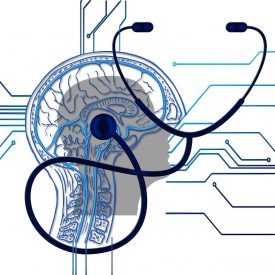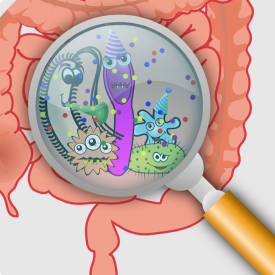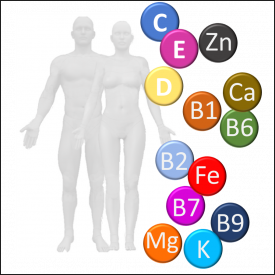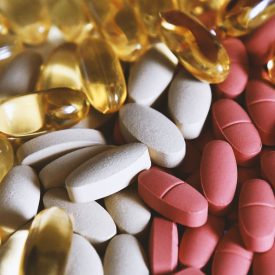As part of our education and outreach effort, we have created this dictionary of terms so that you can learn quickly and read more, where and when you like.
Food and Mental Health
Mental health is the level of psychological well-being or an absence of mental illness. According to the World Health Organization (WHO) [1], mental health is an individual’s sense of well-being, the ability to recognize, express and modulate one’s own emotions, as well as empathize with others. Mental health is also the ability to cope with adverse life events and function in social roles...
Hyperactivity
Hyperactivity is a behavioural trait characterized by overly active behaviour, such as abnormal excessive movements or activities. Typical examples of hyperactivity are excessive talking, fidgeting and restlessness. ...
Impulsivity
Impulsivity is defined as a behaviour that is connected to personality, temperament and mental health. Impulsivity is a predisposition to act hastily and with limited reflection on the possible outcomes. Impulsive behaviour can be described as a happy-go-lucky, act before thinking, unnecessarily risky and inappropriate to the situation. Impulsivity might cause problems in concentration as well. Excessive impulsivity is associated with mental conditions such as ADHD, substance use disorders, bipolar disorder, antisocial personality disorder and borderline personality disorder...
Mediterranean diet
The Mediterranean Diet is based on the traditional cuisine of countries bordering the Mediterranean Sea. It is typically high in vegetables, fruits, whole grains, beans, nuts and seeds, and olive oil. The main components of the Diet include a daily consumption of vegetables, fruits, whole grains, and healthy fats; a weekly intake of fish, poultry, beans and eggs, and moderate portions of dairy products. The intake of red meat should be limited. ...
Microbiome
The microbiome is the collection of microbes from bacteria, fungi, protozoa and viruses that live on and in our body, which perform symbiotic functions to maintain and also reflect our state of health, both physically and mentally. The microbiome can weigh as much as our brain, and produces a wide variety of chemicals that our body cannot produce on its own. Our largest microbiome exists in our large intestine, and helps to process food and liquid intake to create optimal bodily function...
Micronutrients
Micronutrients are small particles such as vitamins and minerals. They are essential for many bodily functions and deficits in micronutrients can result in various illnesses. While some micronutrients are also produced in your body, most need to be taken in through diet to achieve adequate amounts. A healthy, varied diet is the best way to make sure you take in sufficient amounts of these nutrients...
Probiotics
Probiotics are defined as live microorganisms that, when administered in adequate amounts, confer a health benefit. Fermented foods such as yoghurt, sauerkraut, kombucha, tempeh and kimchi are probiotics. Although both probiotics and prebiotics sound similar, they shouldn’t be confused as they work in different ways in the gut...
Schizophrenia
Schizophrenia is a severe and chronic mental disorder, characterized by disturbance in thought, perception and behavior. The symptoms have a negative impact on most functions and social interactions of the individual suffering from it. Schizophrenia does not imply a “split personality” or dissociative identity disorder, as is often wrongly labelled in the public...
Stress
What is stress? Stress is the response of your body to cope with changes in your surroundings. It is normal and necessary to be able to adapt to these changes. However, if the so-called stress response is too long or not helpful for the situation, it becomes a bad thing...
Supplements
Supplements are pills, capsules, tablets or liquids containing nutrients. They can contain, for instance, (multi)vitamins, minerals or fish oils. As their name suggests, dietary supplements are intended to supplement the diet. People may take supplements when their diet does not provide all the nutrients they need. Dietary supplements are not drugs. They are not intended to treat, prevent or cure diseases...









